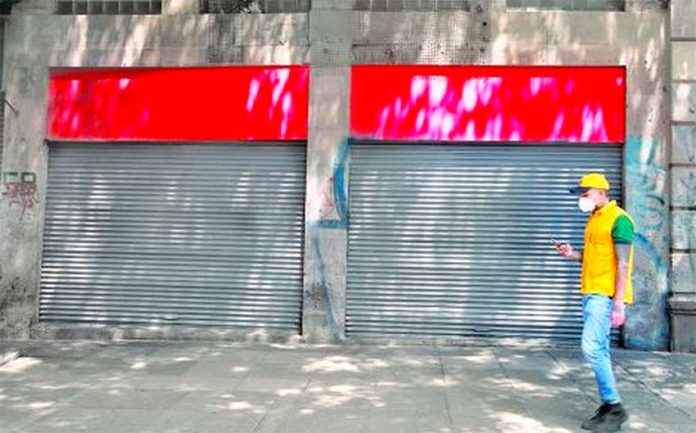One in five micro, small and medium-sized businesses (SMEs) didn’t survive the coronavirus pandemic, according to the national statistics institute Inegi.
Just over a million SMEs closed permanently in 2020, a figure that accounts for about 21% of the approximately 4.9 million SMEs in the country at the start of last year.
However, that figure was partially offset by the opening of almost 620,000 SMEs over the past 1 1/2 years, Inegi said.
José Luis de la Cruz, director of the Institute for Industrial Development and Economic Growth, a think tank, told the newspaper Milenio that SMEs bore the brunt of the coronavirus-induced economic downturn.
“Micro, small and medium-sized businesses were the worst hit without a doubt. Small businesses are more easily affected by crises,” he said, adding that greater government support could have helped to reduce the number of closures.
José Manuel López Campos, president of the Confederation of Chambers of Commerce, Services and Tourism (Concanaco), estimated that the revenue of businesses in those sectors between the start of 2020 and now would have been 500 billion pesos (US $24.2 billion) higher had the pandemic not occurred.
He said that about 3 million jobs were lost in the formal and informal sectors last year and only two-thirds have since been recovered. Many people who regained their jobs are now earning less, López said, adding that lower salaries have a negative impact on domestic consumption and economic growth.
The Concanaco chief said that support for SMEs as the economy recovers from last year’s sharp downturn is important because they are the nation’s largest employers.
However, the government doesn’t have the money to roll out ambitious, large-scale support, de la Cruz said.
The government provided 25,000-peso (US $1,200) loans to small businesses affected by the pandemic but the support was widely seen as inadequate amid the worst economic downturn since the Great Depression. President López Obrador, a fiscal conservative who has made “republican austerity” a hallmark of his administration, refused to increase public debt to support the economy amid the recession.
The president has remained upbeat about a quick recovery, and his administration is forecasting 4.6% growth in 2021. Deputy Finance Minister Gabriel Yorio said recently that the growth forecast would be revised upwards to over 5% but even if that level of expansion is achieved, the economy will still be smaller in 2021 than it was pre-pandemic in 2019.
Finance Minister Arturo Herrera said last October that a full recovery of the economy will occur once a coronavirus vaccine becomes available and widespread inoculation has occurred. Mexico’s vaccination has now been underway for almost three months but with only 4% of the population having received a shot, widespread inoculation is still a very long way off.
Source: Milenio (sp)
